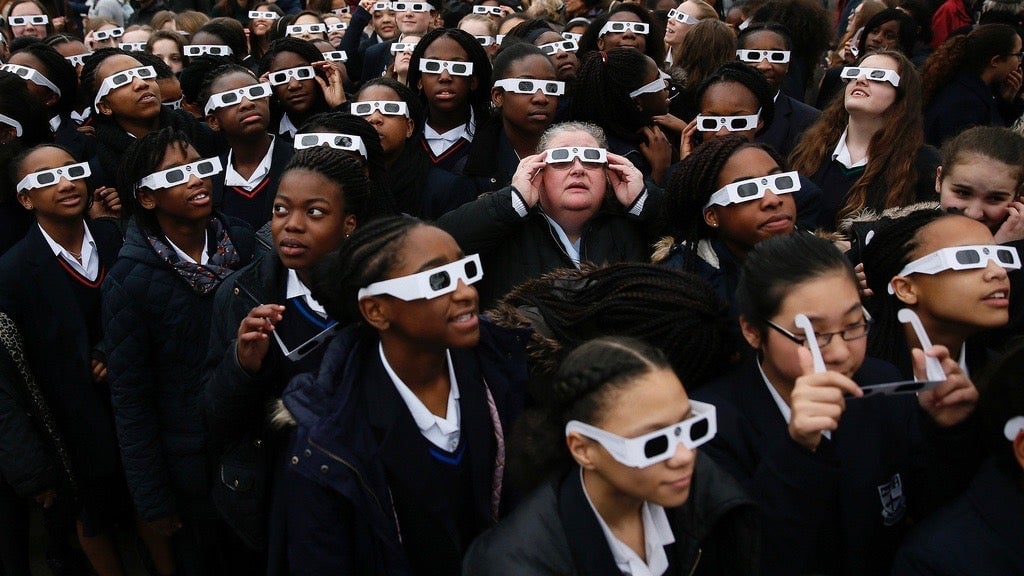Astronomers approved more safe solar glasses vendors for eclipse watchers
The total solar eclipse that will be visible in parts of the US on August 21 is the most anticipated event of the summer. And you’re invited. No need to RSVP. But do grab astronomer-approved solar glasses in advance because staring at the sun is always dangerous.


The total solar eclipse that will be visible in parts of the US on August 21 is the most anticipated event of the summer. And you’re invited. No need to RSVP. But do grab astronomer-approved solar glasses in advance because staring at the sun is always dangerous.
The real things may not be that easy to find. Eclipse glasses are selling like hotcakes online but few vendors actually meet safety standards set out by astronomers, it turns out. The American Astronomical Society’s Solar Eclipse Task Force on August 1 issued an updated list of reputable vendors whose products have passed muster and with whom the organization has had positive experiences.
The AAS urges eclipse-gazers to be vigilant about getting safe solar glasses.”Your eyes are precious! You don’t need astronomers to tell you that, but you do need astronomers to tell you where to get safe solar filters,” the website says (emphasis in the original). The following companies make or sell eclipse glasses that have been verified by an accredited testing laboratory to meet the ISO 12312-2 international standard (proving passage of International Organization of Standardization safety tests), and were deemed reputable by the AAS:
- American Paper Optics (Eclipser)
- APM Telescopes (Sunfilter Glasses)
- Baader Planetarium (AstroSolar Silver/Gold Film)
- Celestron (EclipSmart Glasses & Viewers)
- DayStar (Solar Glasses)
- Explore Scientific (Solar Eclipse Sun Catcher Glasses)
- Lunt Solar Systems (SUNsafe SUNglasses)
- Meade Instruments (EclipseView Glasses & Viewers)
- Rainbow Symphony (Eclipse Shades)
- Thousand Oaks Optical (Silver-Black Polymer & SolarLite)
- TSE 17 (Solar Filter Foil)
Companies not on this list might still be making safe glasses, but these are names the AAS says can for sure be trusted.
Even if you think your glasses are made by one of these approved companies, check them again, carefully—some online sellers are claiming to be certified and to use lenses from approved manufacturers but are instead selling imitations.
NASA’s eclipse 2017 website has guidance on eclipse safety and solar glasses as well. According to NASA, a safe pair will bear ISO 12312-2 certification, have the manufacturer’s name and address printed on the product, be unscratched, and be no older than three years old. (NASA’s website lists five verified manufacturers: American Paper Optics, Baader Planetarium, Rainbow Symphony, Thousand Oaks Optical, and TSE 17. But since the AAS has been leading NASA’s eclipse-glasses safety program, it’s likely that NASA’s site will be updated in the coming week.)
The AAS also notes that you can probably trust eclipse viewers that you got from a science museum, planetarium, or astronomy trade show. If you can trace the glasses to a reputable source, and the glasses have the ISO logo—plus a statement attesting to their ISO 12312-2 compliance—you’re probably safe. “What you absolutely should not do is search for eclipse glasses on the internet and buy whatever pops up in the ads or search results,” the society advises.